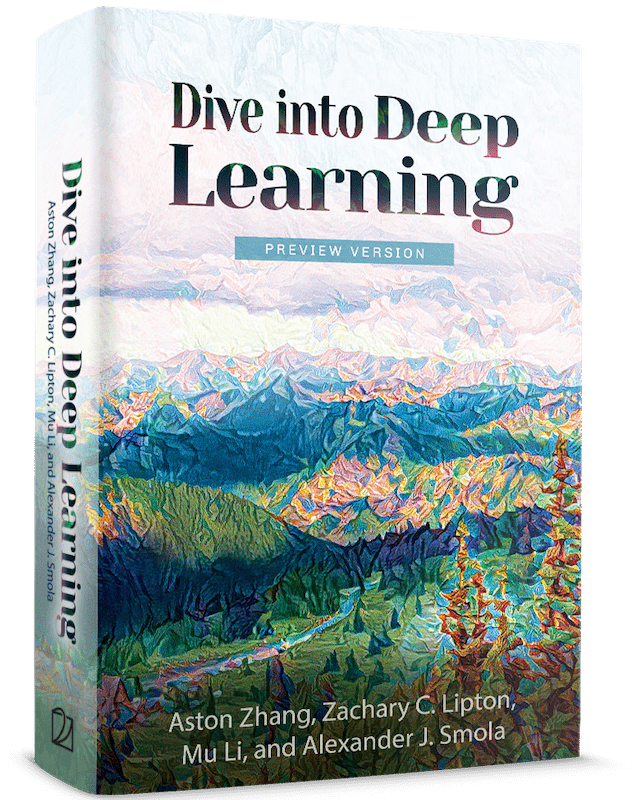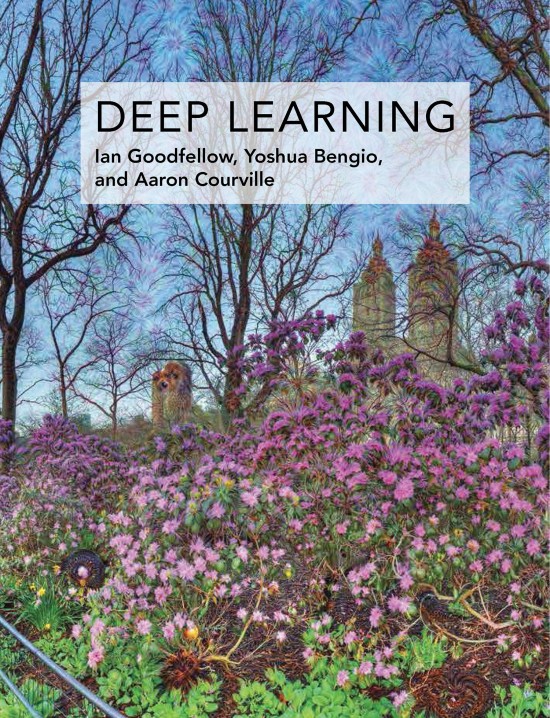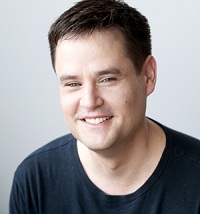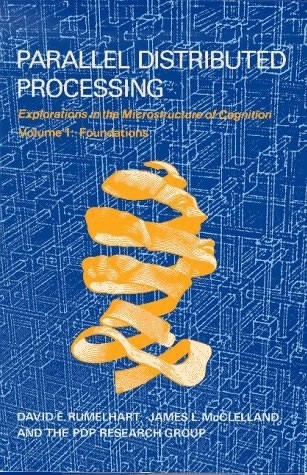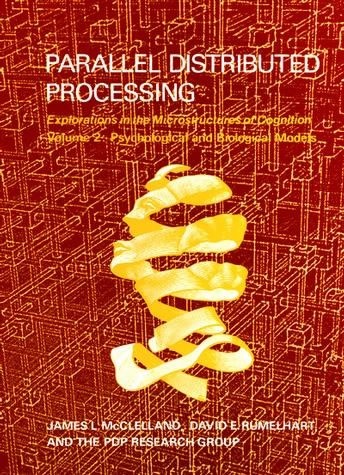Schedule of Lectures
You can watch the recorded lectures on MediaServices.| Lecture | Date | Topics | Slides and Video | Additional Materials | Quiz |
|---|---|---|---|---|---|
| 0 | - |
|
Slides (*.pdf) Video (YT) |
- | |
| 1 | Monday, 28 Aug |
|
Slides (*.pdf) Video (YT) |
The New
Connectionism
(1988)
On Alan Turing's Anticipation of Connectionism McCullogh and Pitts paper Rosenblatt: The perceptron Bain: Mind and body Hebb: The Organization Of Behaviour |
Quiz 1 |
| 2 | Wednesday, 30 Aug |
|
Slides
(*.pdf) Video (YT) |
Shannon (1949) Boolean Circuits On the Bias-Variance Tradeoff |
|
| 3 | Monday, 4 Sep |
|
Slides (*.pdf) Video (YT) |
Quiz 2 | |
| 4 | Wednesday, 6 Sep |
|
Slides (*.pdf) Video (YT) |
Widrow and
Lehr (1992) Adaline and Madaline Convergence of perceptron algorithm Threshold Logic TC (Complexity) AC (Complexity) |
|
| 5 | Monday, 11 Sep |
|
Slides (*.pdf) Video (YT) Video, 5b (YT) |
Werbos
(1990) Rumelhart, Hinton and Williams (1986) |
Quiz 3 |
| 6 | Wednesday, 13 Sep |
|
Slides (*.pdf) Video (YT) |
Backprop fails
to separate,
where
perceptrons succeed, Brady et al. (1989) Why Momentum Really Works |
|
| 7 | Monday, 18 Sep |
|
Slides
(*.pdf) Video (YT) |
Momentum,
Polyak (1964) Nestorov (1983) Derivatives and Influences |
Quiz 4 |
| 8 | Wednesday, 20 Sep |
|
Slides
(*.pdf) Video, 8a (YT) Video, 8b (YT) |
Derivatives and
Influence Diagrams ADAGRAD, Duchi, Hazan and Singer (2011) Adam: A method for stochastic optimization, Kingma and Ba (2014) |
|
| 9 | Monday, 25 Sep |
|
Slides (*.pdf) Video (YT) |
Quiz 5 | |
| 10 | Wednesday, 27 Sep |
|
Slides (*.pdf) Video, 10a (YT) Video, 10b (YT) |
||
| 11 | Monday, 2 Oct |
|
Slides (*.pdf) Video (YT) |
Quiz 6 | |
| 12 | Wednesday, 4 Oct |
|
Slides (*.pdf) Video (YT) |
||
| 13 | Monday, 9 Oct |
|
Slides (*.pdf) Video (YT) |
Quiz 7 | |
| 14 | Wednesday, 11 Oct |
|
Slides
(*.pdf) Video (YT) |
LSTM How to compute a derivative, extra help for HW3P1 (*.pptx) |
|
| - | Monday, 16 Oct |
|
- | Quiz 8 | |
| - | Wednesday, 18 Oct |
|
- | ||
| 15 | Monday, 23 Oct |
|
Slides
(*.pdf) Video, 15a (YT) Video, 15b (YT) |
Quiz 9 | |
| 16 | Wednesday, 25 Oct |
|
Slides
(*.pdf) Video (YT) |
Labelling Unsegmented Sequence Data with Recurrent Neural Networks | |
| 17 | Monday, 30 Oct |
|
Slides
(*.pdf) Video (YT) |
Quiz 10 | |
| 18 | Wednesday, 1 Nov |
|
Slides (*.pdf)
Video (YT) |
Attention Is All You
Need The Annotated Transformer - Attention is All You Need paper, but annotated and coded in pytorch! |
|
| 19 | Monday, 6 Nov |
|
Slides
(*.pdf) Video (YT) |
A comprehensive Survey on Graph Neural Networks | Quiz 11 |
| 20 | Wednesday, 8 Nov |
|
Slides
(*.pdf) Video (YT) |
||
| 21 | Monday, 13 Nov |
|
Slides
(*.pdf) Video (pre-recorded) (YT) |
Tutorial on VAEs (Doersch) Autoencoding variational Bayes (Kingma) |
Quiz 12 |
| 22 | Wednesday, 15 Nov |
|
Slides (*.pdf) Video (pre-recorded) (YT) |
||
| 23 | Monday, 20 Nov |
|
Slides (*.pdf) Video (YT) |
Quiz 13 | |
| - | Wednesday, 22 Nov |
|
- | ||
| 24 | Monday, 27 Nov |
|
Slides
(*.pdf) Video (YT) |
Quiz 14 | |
| 25 | Wednesday, 29 Nov |
|
Slides (*.pdf) Video (YT) |
||
| 26 | Monday, 4 Dec |
|
Slides (*.pdf) Video (YT) |
No Quiz | |
| 27 | Wednesday, 6 Dec |
|
Video (YT) |
Schedule of Recitations
| Recitation | Date | Topics | Materials | Videos | Instructor |
|---|---|---|---|---|---|
| 0A | Friday, 25th August | Python & OOP Fundamentals | ` | Sumesh & Raghav | |
| 0B | Friday, 25th August | OOP Fundamentals | Notebook (*.zip) | ` | Aishwarya & Denis |
| 0C | Friday, 25th August | NumPy Fundamentals | Notebook + Exercise (*.zip) | Harini & Meng | |
| 0D | Friday, 25th August | PyTorch Fundamentals | Notebook + Slides + Exercise (*.zip) |
Video (YT)
|
Jean & Sumesh |
| 0E | Friday, 25th August | Introduction to Google Colab | Colab Notebook |
Video (YT)
|
Rucha & Tony |
| 0F | Friday, 25th August | Google Cloud | VM Setup Script |
Video (YT):
1,
2
|
Meng & Harini |
| 0G | Friday, 25th August | AWS |
Video (YT)
|
Josh & Yohannes | |
| 0H | Friday, 25th August | Kaggle |
Video (YT)
|
Denis & Shikhar | |
| 0I | Friday, 25th August | Datasets | Colab Notebook |
Video (YT)
1,
2
|
Tony & Muhammed |
| 0J | Friday, 25th August | Dataloaders | Notebook (*.zip) |
Video (YT)
|
Raghav & Qin |
| 0K | Friday, 25th August | Data Preprocessing |
Colab Notebook 1, 2, 3 |
Video (YT)
1,
2,
3
|
Qin & Tony |
| 0L | Friday, 25th August | Debugging | Slides (*.zip) |
Video (YT)
1,
2,
3,
4
|
Shikhar & Harshith |
| 0M | Friday, 25th August | What to do when struggling |
Video (YT)
|
Miya & Aishwarya | |
| 0N | Friday, 25th August | Cheating |
Video (YT)
|
Dheeraj & Sarthak | |
| 0O | Friday, 25th August | Workflow of HWs | Notebook (*.zip) |
Video (YT)
|
Jeel & Jean |
| 0P | Friday, 25th August | WandB | Colab Notebook |
Video (YT)
1,
2
|
Harshit & Jeel |
| 0Q | Friday, 25th August | To write a report |
Video (YT)
|
David (Spring 2022) | |
| 0R | Friday, 25th August | Flow of the project |
Video (YT)
|
Pavitra & Rucha | |
| 0S | Friday, 25th August | Git |
Video (YT)
|
Josh & Harshit | |
| 0T | Friday, 25th August | Losses | Notebook (*.zip) | Video (YT) | Dheeraj & Harshith |
| 0U | Friday, 25th August | Block Processing | Colab Notebook | Video (YT) | Vish & Muhammed |
| 1 | Friday, 1st September | Your first MLP Code | Notebook | Video (YT) | Jiaye "Tony" Zou & Kelsey J. Harvey |
| HW1 Bootcamp | Thursday, 7th September | How to get started with HW1 | Slides (*.zip) | Video (YT) | Denis Musinguzi, Harshit Mehrotra, Liangze "Josh" Li, Pavitra Kadiyala, Qin Wang, Yohannes, Schadrack |
| 2 | Friday, 8th September | Optimizing the Networks, Hyperparameter Tuning, Ensembles | Slides (*.pdf) |
Video (YT) |
Harshit Mehrotra & Liangze "Josh" Li |
| Hackathon | Saturday, 9th September | HW1 | Dheeraj Pai, Liangze "Josh" Li, Pavitra Kadiyala | ||
| 3 | Friday, 15th September | Computing Derivatives & Autograd |
Slides (*.pdf)
|
Video (YT)
|
Dheeraj Pai & Miya Sylvester |
| Hackathon | Saturday, 16th September | HW1 | Dheeraj Pai, Pavitra Kadiyala, R Raghav | ||
| 4 | Friday, 22nd September | Hyperparameter Tuning Methods, Normalizations | Slides (*.pdf) |
Video (YT) |
Harini Subramanyan & Jeel Shah |
| Hackathon | Saturday, 23rd September | HW1 | Harshit Mehrotra & Jeel Shah | ||
| HW2 Bootcamp | Thursday, 28th September | How to get started with HW2 | Slides, P1 (*.pdf) Slides, P2 (*.pdf) | Video (YT) | Harini Subramanyan, Jeel Shah, Qin Wang, R Raghav, Rucha Manoj Kulkarni, Vish, Muhammad Danso, Schadrack Niyibizi |
| 5 | Friday, 29th September | CNN: Basics and Backprop | Slides(*.pptx) | Video (YT) | R Raghav & Schadrack Niyibizi |
| Hackathon | Saturday, 30th September | HW2 | Miya Sylvester, Rucha Manoj Kulkarni, Schadrack Niyibizi | ||
| 6 | Friday, 6th October | CNNs: Classification, Verification | Slides (*.pptx) |
Video (YT)
|
Sumesh Kalambettu Suresh & Emmanuel Ndayisaba |
| Hackathon | Friday, 7th October | HW2 | Harini Subramanyan, Harshith Arun Kumar, Schadrack Niyibizi | ||
| 7 | Friday, 13th October | Paper Writing Workshop | Slides (*.pdf) |
Video (YT) |
Pavitra Kadiyala & Dheeraj Pai |
| Hackathon | Saturday, 14th October | HW2 | Qin Wang, Harshith Kumar, R Raghav, Sumesh Kalambettu Suresh, Schadrack Niyibizi | ||
| Hackathon | Saturday, 21st October | HW2 | Schadrack Niyibizi | ||
| HW3 Bootcamp | Thursday, 26th October | How to get started with HW3 |
Video (YT) |
Harshit Mehrotra, Qin Wang, Rucha Manoj Kulkarni, Shikhar Agnihotri Sumesh Kalambettu Suresh, Yohannes, Jiaye "Tony" Zou | |
| 8 | Friday, 27th October | RNN Basics |
Slides (*.pdf) Notebook (*.zip) |
Video (YT) |
Meng Zhou & Shreyas |
| Hackathon | Saturday, 28th October | HW3 | Miya Sylvester, Rucha Manoj Kulkarni, Schadrack Niyibizi | ||
| 9 | Friday, 3rd November | CTC, Beam Search |
Notebook (.ipynb) Slides (.pptx) |
Video (YT) |
Qin Wang & Shikhar Agnihotri |
| Hackathon | Saturday, 4th November | HW3 | Qin Wang, Schadrack Niyibizi | ||
| HW4 Bootcamp | Thursday, 9th November | How to get started with HW4 |
Slides (.pdf) |
Video (YT) |
Denis Musinguzi, Harini Subramanyan, Harshit Mehrotra, Liangze "Josh" Li, Meng Zhou, Shikhar Agnihotri, Vish, Muhammad Danso |
| 10 | Friday, 10th November | Attention, MT, LAS |
Slides (.pdf) |
Video (YT) |
Rucha Manoj Kulkarni & Muhammed Danso |
| Hackathon | Saturday, 11th November | HW4 | Harini Subramanyan, Liangze "Josh" Li, Miya Sylvester, Muhammad Danso, Schadrack Niyibizi | ||
| 11 | Friday, 17th November | Transformers |
Transformer Notebook ViT Notebook |
Video (YT) |
Vish & Yohannes Haile |
| Hackathon | Saturday, 18th November | HW4 | Harshit Mehrotra, Schadrack Niyibizi | ||
| 12 | Friday, 1st December | Graph Neural Networks |
Colab Notebook |
Video (YT) |
Denis Musinguzi & Kelsey J. Harvey |
| Hackathon | Saturday, 2nd December | HW4 | TBA | TBA | Schadrack Niyibizi |
| 13 | Friday, 8th December | Autoencoders and VAEs (GANs) | TBA | TBA | Harshith Arun Kumar & Emmanuel Ndayisaba |
Assignments
∑ Ongoing, ∏ Upcoming
| Assignment | Release Date (EST) | Due Date (EST) | Related Materials / Links |
|---|---|---|---|
| HW1P1 | Wednesday, 6th Sept, 12:00 AM | Early Submission: 14th Sept, 11:59 PM | Autolab |
| Final: 23rd Sept, 11:59 PM | |||
| HW1P2 | Wednesday, 6th Sept, 12:00 AM | Early Submission: 14th Sept, 11:59 PM |
Kaggle,
Writeup (pdf), Starter Notebook |
| Final: 24th Sept, 11:59 PM | |||
| HW1 Bonus | Wednesday, 6th Sept, 12:00 AM | Saturday, 14th Oct, 11:59 PM | Autolab |
| HW1 Autograd | Wednesday, 6th Sept, 12:00 AM | Saturday, 21st Oct, 11:59 PM | Autolab |
| HW2P1 | Monday, 25th Sept, 12:00 AM | Early Submission: 5th Oct, 11:59 PM | Autolab |
| Final: 22nd Oct, 11:59 PM | |||
| HW2P2 | Monday, 25th Sept, 12:00 AM | Early Submission: 5th Oct, 11:59 PM |
Kaggle-Classification Kaggle-Verification Writeup (pdf) Starter Notebook |
| Final: 22nd Oct, 11:59 PM | |||
| HW2 Bonus | Monday, 25th Sept, 12:00 AM | Saturday, 4th Nov, 12:00 AM | Autolab |
| HW2 Autograd | Monday, 25th Sept, 12:00 AM | Saturday, 11th Nov, 12:00 AM | Autolab |
| HW3P1 | Monday, 23rd Oct, 12:00 AM | Early Submission: 31st Oct, 11:59 PM |
Autolab,
Writeup
(pdf), Handout (.tar) |
| Final: 9th Nov, 11:59 PM | |||
| HW3P2 | Monday, 23rd Oct, 12:00 AM | Early Submission: 31st Oct, 11:59 PM |
Kaggle,
Writeup (pdf), Starter Notebook, MCQ |
| Final: 9th Nov, 11:59 PM | |||
| HW3 Bonus | TBA | TBA | |
| HW3 Autograd | TBA | TBA | |
| HW4P1 | Monday, 6th Nov, 12:00 AM | Early Submission: 16th Nov, 11:59 PM |
Autolab,
Writeup
(pdf), Handout (.tar) |
| Final: 2nd Dec, 11:59 PM | |||
| HW4P2 | Monday, 6th Nov, 12:00 AM | Early Submission: 16th Nov, 11:59 PM |
Kaggle,
Writeup (pdf), Starter Notebook |
| Final: 2nd Dec, 11:59 PM | |||
| HW4 Bonus | TBA | TBA | |
| HW4 Autograd | TBA | TBA |
Documentation and Tools
Textbooks
This is a selection of optional textbooks you may find useful
